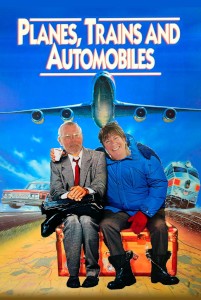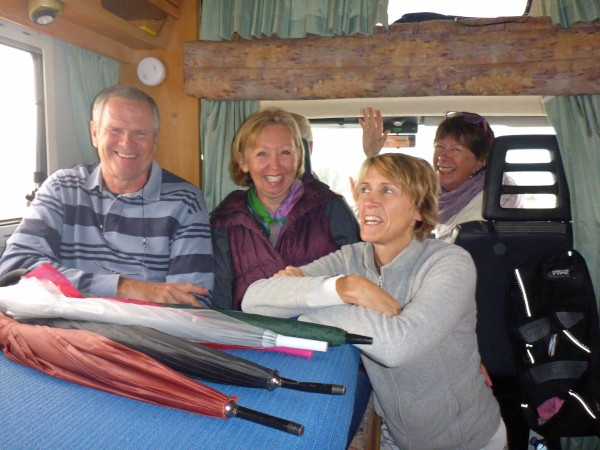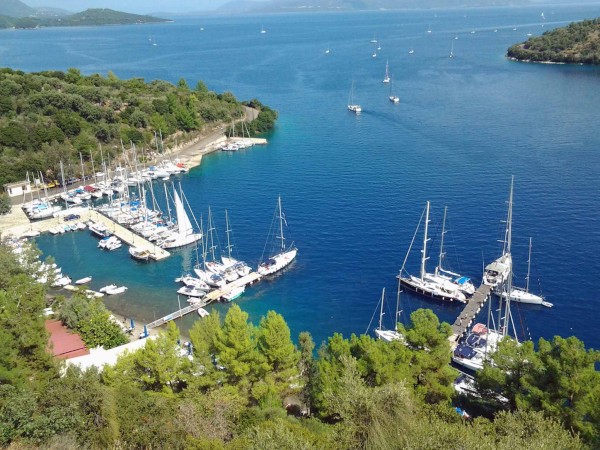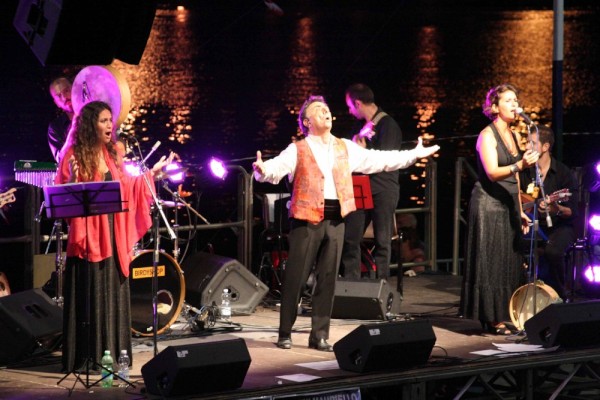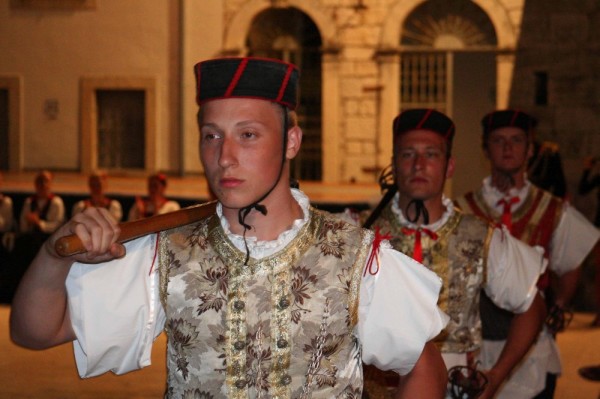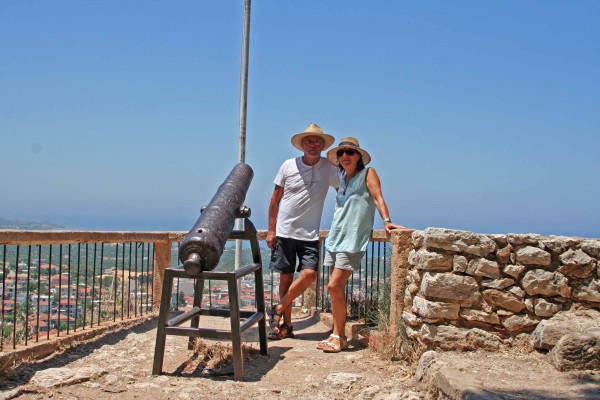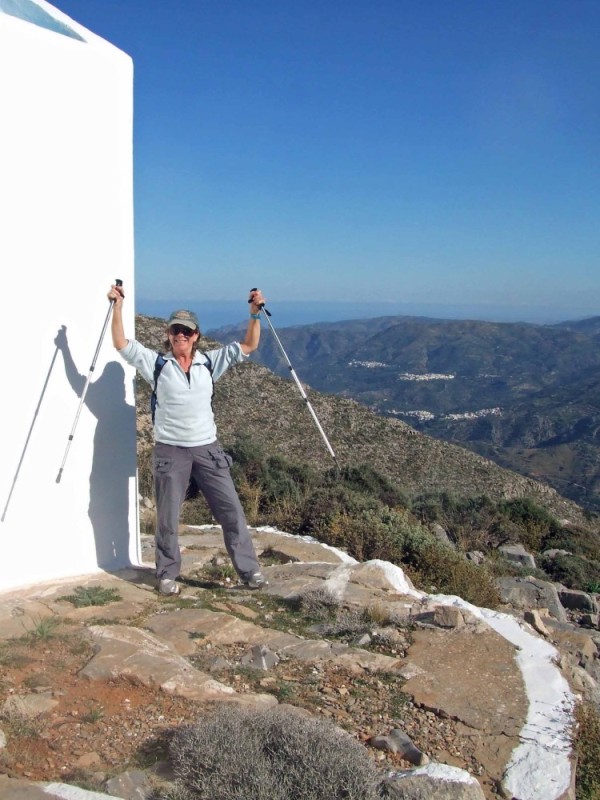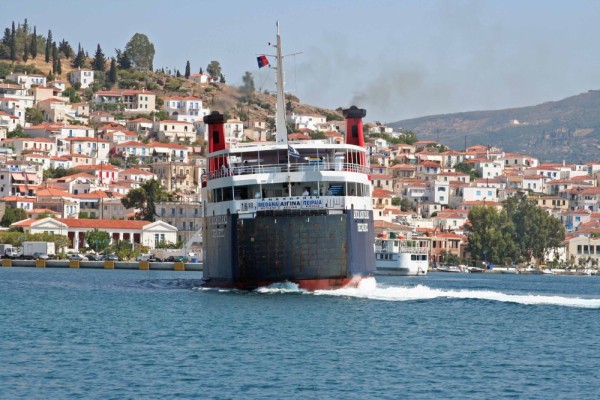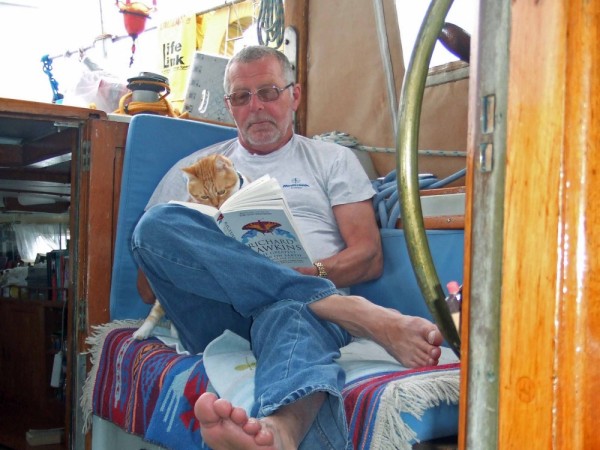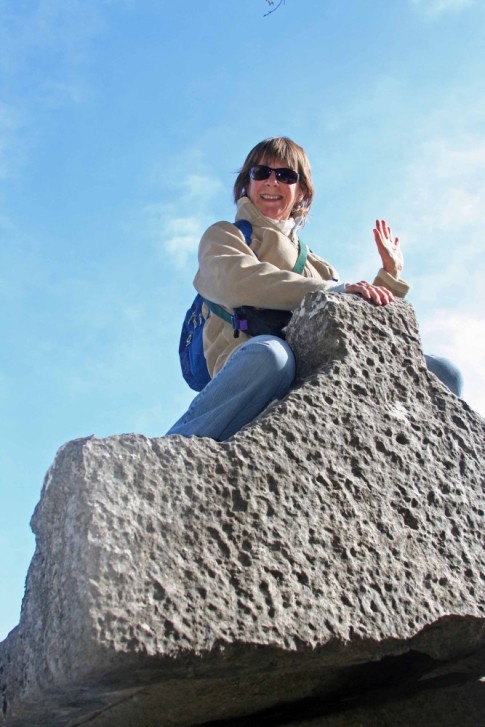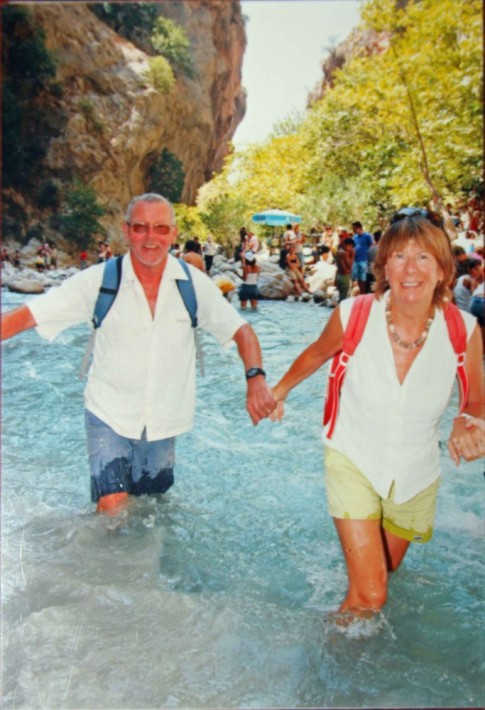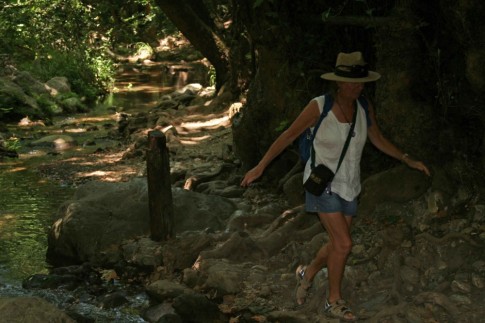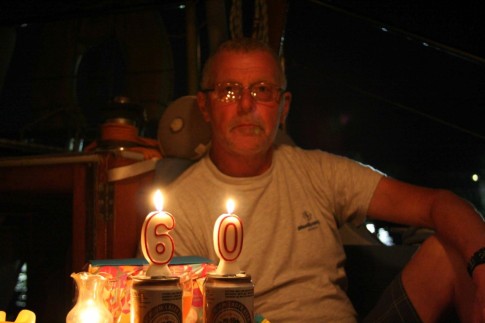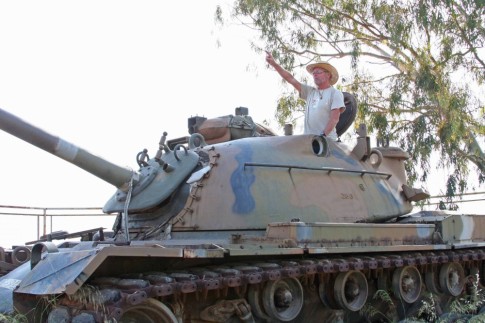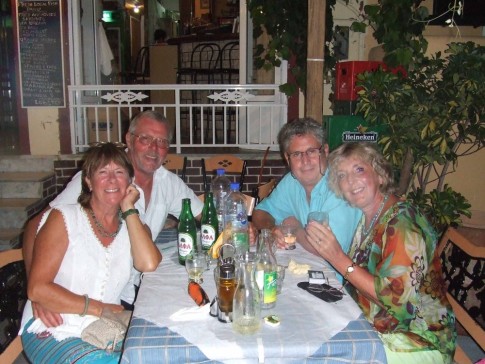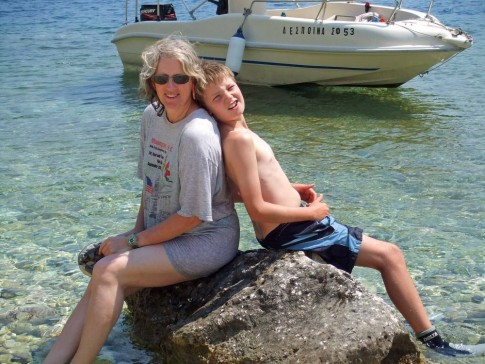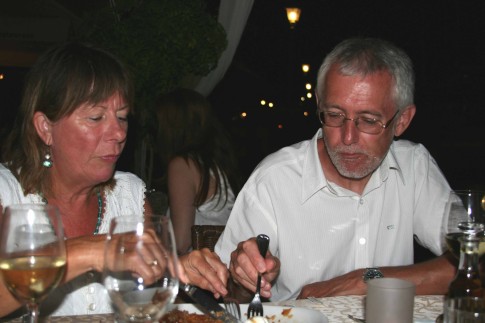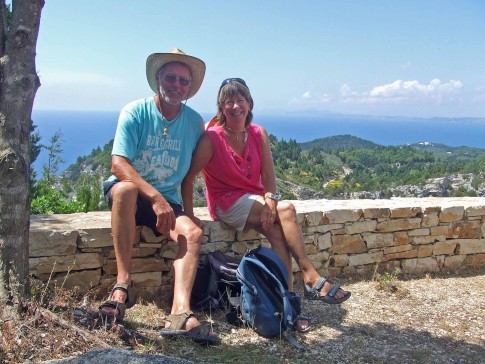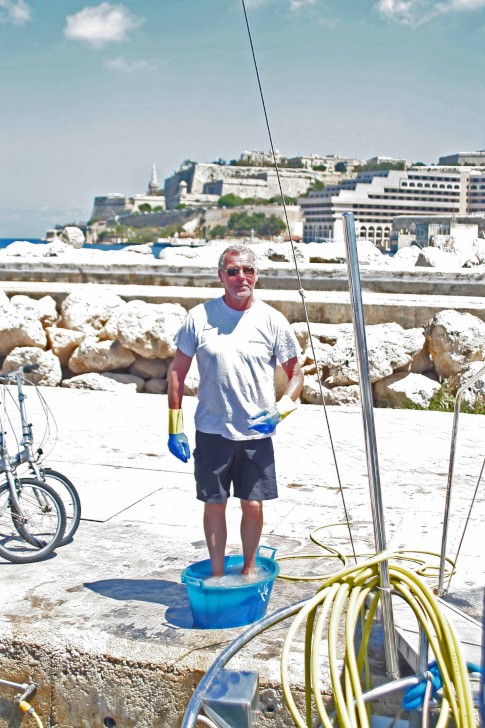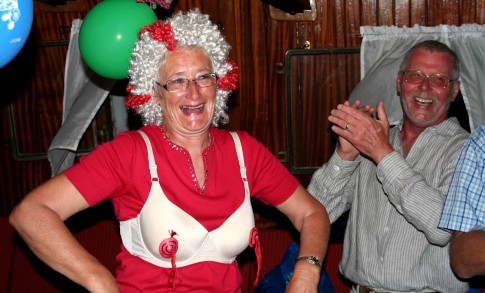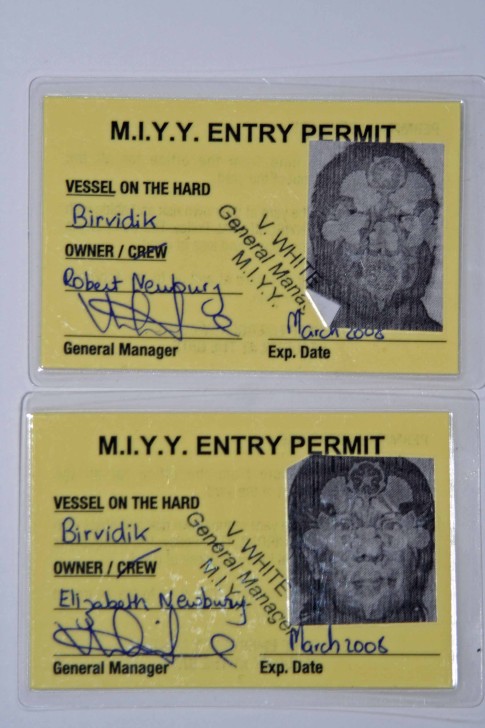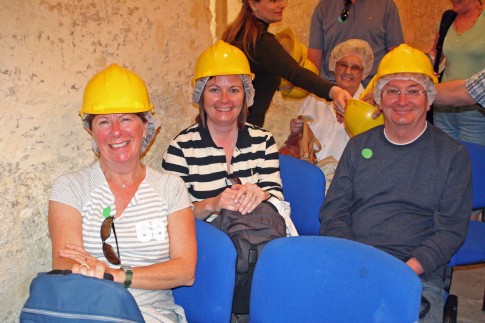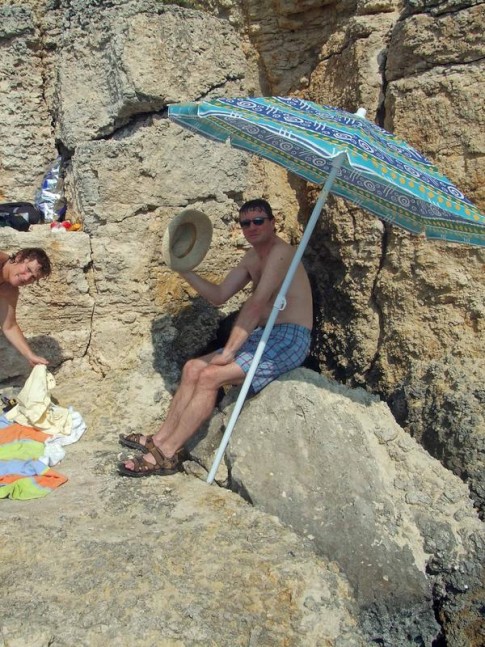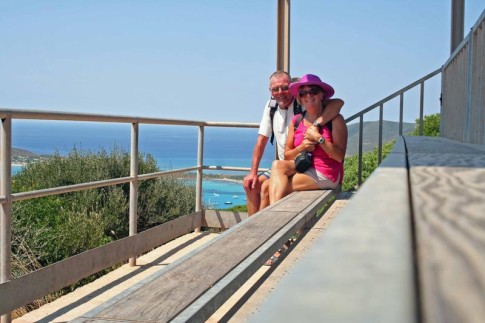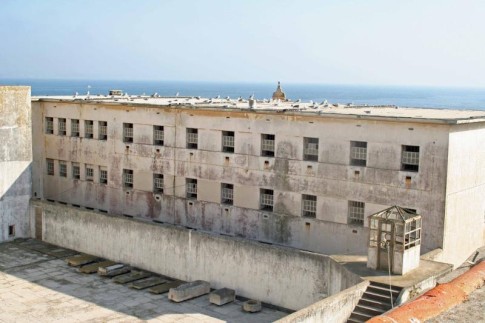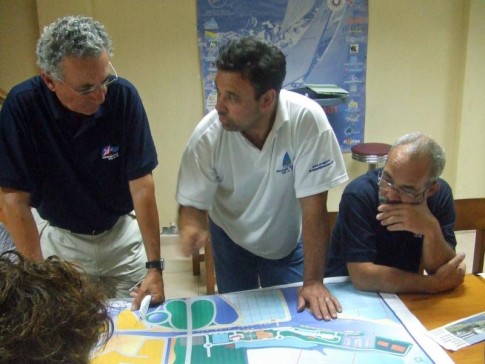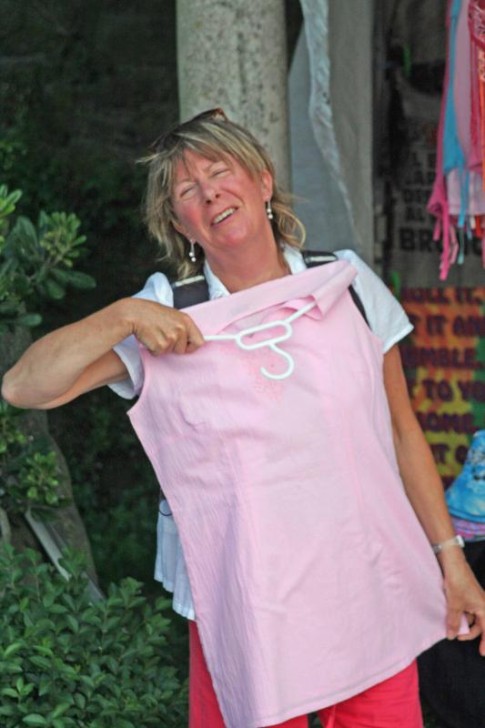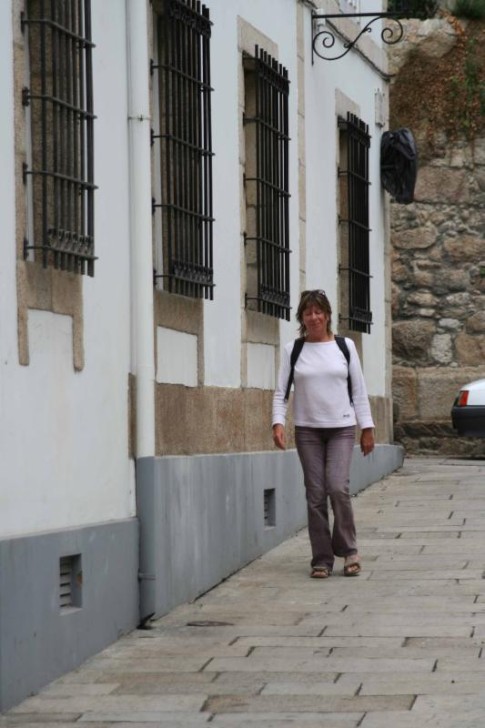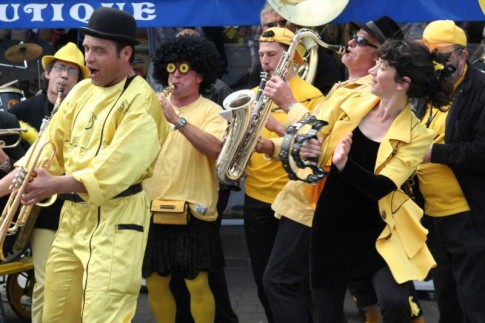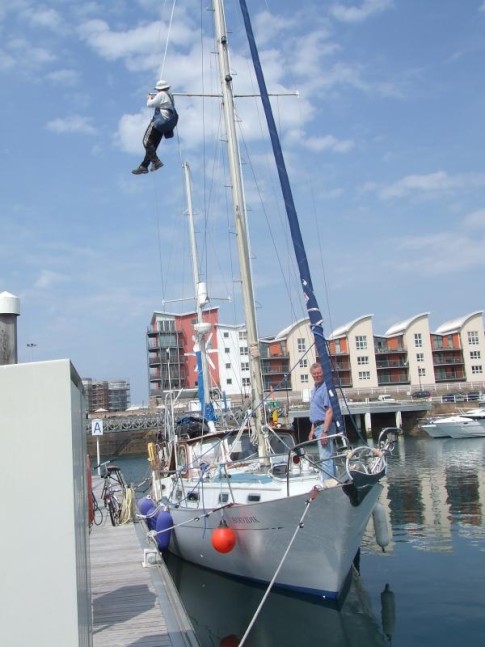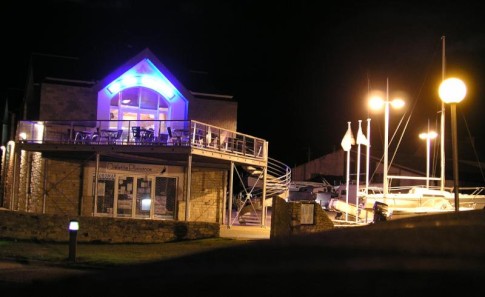Birvidik
| Vessel Name: | Birvidik |
| Vessel Make/Model: | Victory 40 |
| Hailing Port: | Jersey C.I. |
| Crew: | Bob Newbury |
| About: | Liz Newbury |
| Extra: | 11 years into a 10 year plan, but we get there in the end. |
24 December 2023
22 November 2023 | Here I am, stuck in the middle with you.
14 August 2023 | A farce in three acts.
14 August 2023 | Sliding Doors
14 August 2023 | The Game Commences
14 August 2023 | or
11 March 2023 | Joseph Heller, eat your heart out.
24 December 2022
26 August 2022 | or 'French Leave'
03 August 2022 | or 'Fings ain't the way they seem'
18 June 2022 | or Desolation Row
22 March 2022 | or "Every Form of Refuge Has its Price
22 March 2022
28 October 2021 | and repeat after me - "Help Yourself"
23 September 2021 | Warning - Contains strong language and explicit drug references
23 September 2021 | or Everything's Going to Pot
04 September 2021 | or Out of my league
27 August 2021 | or 'The Whine of the Ancient Mariner
16 August 2021 | Found in marina toilet, torn into squares and nailed to door.
06 August 2021 | or 'The Myth of Fingerprints'
Recent Blog Posts
22 November 2023 | Here I am, stuck in the middle with you.
Clowns to the left of me, Jokers to the right
As a fully paid-up Guardianista, I am fully aware that blanket, stereotypic statements along the lines of:
The full, gory details
04 March 2018 | at last
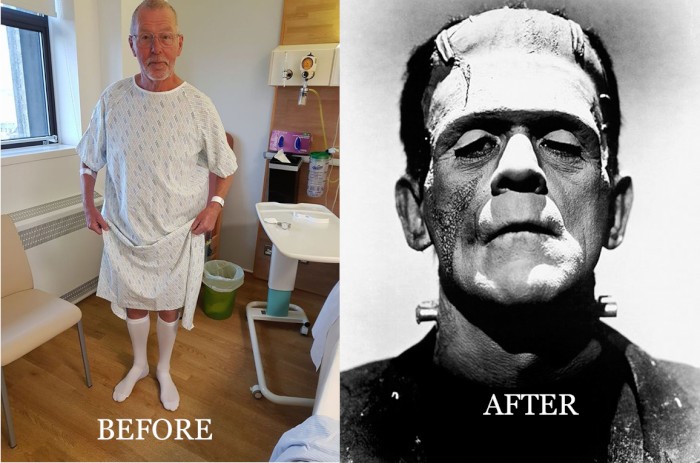
So - surgery all done and dusted. It cost five grand altogether, plus flights. Still cheaper than getting it done in Spain.
And what does one get for one's five grand? Well, quite a lot really. In chronological order:
• Consultation with pre-assessment nurse
• Microbiology tests for MRSA amongst other nasties.
• Pre-operative consultation with surgeon.
• Pre-operative blood tests.
• Private room for one day (as long as you're out by 8 p.m.).
• Pre-operative consultation with anaesthetist.
• Disposable theatre gown and fetching anti-embolism socks.
• Use of theatres and services of nursing staff (Reception, theatre proper and recovery).
• Surgery.
• Assorted instruments, drugs and anaesthetics.
• Complementary arm sling in fetching navy blue.
• Post-operative consultation with anaesthetist.
• Post-operative plate of rather nice sandwiches & endless cups of tea.
• Assorted painkillers of varying strengths, including some medium-duty opiates.
• A slack handful of anti-inflammatories.
• Post-operative consultation with surgeon.
• 2 x physiotherapy sessions
• Post-operative INR blood test.
All of this organised and carried out within a two week period. I think they've done this sort of thing before.
Things got off to a bit of a shaky start with the pre-assessment consultation. After the usual questions on medical history and current drug regime, she moved on to lifestyle. "Do you smoke?" she asked.
"Not for 26 years" I replied smugly.
"What about alcohol?"
"Between thirty and thirty five units a week."
This took her aback a tad. I suspect that clinical staff have a very low opinion of patients' veracity when asked questions such as this. I think they have a general modus operandi of taking the proffered answer and at least doubling it. She obviously thought I was in the Oliver Reed/Jeffrey Bernard category or NFJ as it is known.*
She looked at me askance. "What do you mean by a unit?"
"The equivalent of 10 ml of pure ethanol."
This didn't help.
"So what's 30 units in terms of bottles of wine?"
"Depends on the strength of the wine and the size of the bottle." I countered. She didn't seem impressed by this line of analysis. "I'll tell you what" I suggested, "Just put Drinks too much." After that, all went swimmingly.
Apparently, shoulder surgery is a bugger for post-operative pain. For that reason, the anaesthetist used an interscalene nerve block. This completely numbs the arm and has the added advantage of enabling the use of a much lighter general anaesthetic. This is a good thing for decrepit old gits like me as inhalation GAs have a reputation for accelerating the onset of dementia when given to those of us who are already well on the road to ga-ga land. The blocks are also popular with the surgeons as, should the patient start to come round on the table, (s)he still can't feel a thing. I have it on good authority that surgeons find it very difficult to concentrate when there's a load of agonised wailing and thrashing about going on.
The block lasts about 24 hours. This means that when I woke up, my arm didn't. Now this was obviously a good thing given the state it was in. They had ground off a couple of bits of bone and carved away some chunks of capsule. Then for good measure they gave it a good manipulation under anaesthetic. This involves wrenching the arm into all sorts of positions that it really doesn't want to get into, making the MUA a sort of slightly kinder version of the strappado as practiced by the mediaeval inquisition. It still leaves your shoulder feeling like it's just been put through a mangle, but at least it didn't hurt at the time.
These sensory joys, though, had to wait until the block wore off. Until that happened, it was a very weird sensation indeed. The sensory and motor nerves were blocked and so, as expected, I could neither feel it nor move it. This is a strange enough feeling as it stands, but what made it really bizarre was that the proprioceptors were hors de combat as well. These are clever little beasties scattered throughout the body in muscles, tendons and joints. They relay information to the brain that enables it to know where all the different parts of the body are and their positions relative to each other. It is from this that the brain recognizes that different parts of the body exist and that they are part of what the brain recognizes as 'self'.
When the proprioceptors in a part of the body are blocked it ceases to be recognized as part of yourself. The subjective experience is that there is something alien attached to your body; as if some raving psychopath had, just for the Hell of it, removed an arm from a corpse and stitched onto your shoulder to hang there, swinging uselessly. It's a very strange psychological phenomenon. You can look at it and see that it looks exactly like your right arm. You can touch it and see that it's an integral part of your body, but psychologically it's not you. You feel like Boris Karloff in 'Frankenstein'.
This impression is enhanced as the block wears off. Sensation and motor control return erratically and spasmodically. The affected limb behaves itself and follows instructions most of the time but will occasionally and unpredictably suddenly drop or equally unpredictably flick upwards. If you'd put me in a wheelchair I'd have been a dead ringer for Doctor Strangelove.
All this malarkey started about 24 hours post op. After another day or so, things returned to something vaguely approximating to normal. The pain was dramatically less than pre-operatively and the range of movement was much improved although far from what most people would call normal.
Apparently, one of the bugbears of orthopaedic surgeons is that in many cases the degree of success after all their hard work and laboriously acquired skill is, frustratingly, dependent on the pitifully unreliable application and efforts of their pathetically untrustworthy patients. If the patients don't keep up with the physio for months after the procedure then they end up with severely compromised mobility and range of movement. This rather defeats the object of having the procedure done in the first place and plays havoc with the surgeons' stats when the performance data bods come snooping around.
So I'm now looking forward to at least six months of physio and unpleasant stretching exercises. The things I do to massage the fragile egos of the medical profession.
* = Normal For Jersey. Normal For Sark is about three times that.
And what does one get for one's five grand? Well, quite a lot really. In chronological order:
• Consultation with pre-assessment nurse
• Microbiology tests for MRSA amongst other nasties.
• Pre-operative consultation with surgeon.
• Pre-operative blood tests.
• Private room for one day (as long as you're out by 8 p.m.).
• Pre-operative consultation with anaesthetist.
• Disposable theatre gown and fetching anti-embolism socks.
• Use of theatres and services of nursing staff (Reception, theatre proper and recovery).
• Surgery.
• Assorted instruments, drugs and anaesthetics.
• Complementary arm sling in fetching navy blue.
• Post-operative consultation with anaesthetist.
• Post-operative plate of rather nice sandwiches & endless cups of tea.
• Assorted painkillers of varying strengths, including some medium-duty opiates.
• A slack handful of anti-inflammatories.
• Post-operative consultation with surgeon.
• 2 x physiotherapy sessions
• Post-operative INR blood test.
All of this organised and carried out within a two week period. I think they've done this sort of thing before.
Things got off to a bit of a shaky start with the pre-assessment consultation. After the usual questions on medical history and current drug regime, she moved on to lifestyle. "Do you smoke?" she asked.
"Not for 26 years" I replied smugly.
"What about alcohol?"
"Between thirty and thirty five units a week."
This took her aback a tad. I suspect that clinical staff have a very low opinion of patients' veracity when asked questions such as this. I think they have a general modus operandi of taking the proffered answer and at least doubling it. She obviously thought I was in the Oliver Reed/Jeffrey Bernard category or NFJ as it is known.*
She looked at me askance. "What do you mean by a unit?"
"The equivalent of 10 ml of pure ethanol."
This didn't help.
"So what's 30 units in terms of bottles of wine?"
"Depends on the strength of the wine and the size of the bottle." I countered. She didn't seem impressed by this line of analysis. "I'll tell you what" I suggested, "Just put Drinks too much." After that, all went swimmingly.
Apparently, shoulder surgery is a bugger for post-operative pain. For that reason, the anaesthetist used an interscalene nerve block. This completely numbs the arm and has the added advantage of enabling the use of a much lighter general anaesthetic. This is a good thing for decrepit old gits like me as inhalation GAs have a reputation for accelerating the onset of dementia when given to those of us who are already well on the road to ga-ga land. The blocks are also popular with the surgeons as, should the patient start to come round on the table, (s)he still can't feel a thing. I have it on good authority that surgeons find it very difficult to concentrate when there's a load of agonised wailing and thrashing about going on.
The block lasts about 24 hours. This means that when I woke up, my arm didn't. Now this was obviously a good thing given the state it was in. They had ground off a couple of bits of bone and carved away some chunks of capsule. Then for good measure they gave it a good manipulation under anaesthetic. This involves wrenching the arm into all sorts of positions that it really doesn't want to get into, making the MUA a sort of slightly kinder version of the strappado as practiced by the mediaeval inquisition. It still leaves your shoulder feeling like it's just been put through a mangle, but at least it didn't hurt at the time.
These sensory joys, though, had to wait until the block wore off. Until that happened, it was a very weird sensation indeed. The sensory and motor nerves were blocked and so, as expected, I could neither feel it nor move it. This is a strange enough feeling as it stands, but what made it really bizarre was that the proprioceptors were hors de combat as well. These are clever little beasties scattered throughout the body in muscles, tendons and joints. They relay information to the brain that enables it to know where all the different parts of the body are and their positions relative to each other. It is from this that the brain recognizes that different parts of the body exist and that they are part of what the brain recognizes as 'self'.
When the proprioceptors in a part of the body are blocked it ceases to be recognized as part of yourself. The subjective experience is that there is something alien attached to your body; as if some raving psychopath had, just for the Hell of it, removed an arm from a corpse and stitched onto your shoulder to hang there, swinging uselessly. It's a very strange psychological phenomenon. You can look at it and see that it looks exactly like your right arm. You can touch it and see that it's an integral part of your body, but psychologically it's not you. You feel like Boris Karloff in 'Frankenstein'.
This impression is enhanced as the block wears off. Sensation and motor control return erratically and spasmodically. The affected limb behaves itself and follows instructions most of the time but will occasionally and unpredictably suddenly drop or equally unpredictably flick upwards. If you'd put me in a wheelchair I'd have been a dead ringer for Doctor Strangelove.
All this malarkey started about 24 hours post op. After another day or so, things returned to something vaguely approximating to normal. The pain was dramatically less than pre-operatively and the range of movement was much improved although far from what most people would call normal.
Apparently, one of the bugbears of orthopaedic surgeons is that in many cases the degree of success after all their hard work and laboriously acquired skill is, frustratingly, dependent on the pitifully unreliable application and efforts of their pathetically untrustworthy patients. If the patients don't keep up with the physio for months after the procedure then they end up with severely compromised mobility and range of movement. This rather defeats the object of having the procedure done in the first place and plays havoc with the surgeons' stats when the performance data bods come snooping around.
So I'm now looking forward to at least six months of physio and unpleasant stretching exercises. The things I do to massage the fragile egos of the medical profession.
* = Normal For Jersey. Normal For Sark is about three times that.
Comments
Birvidik's Photos - Birvidik (Main)
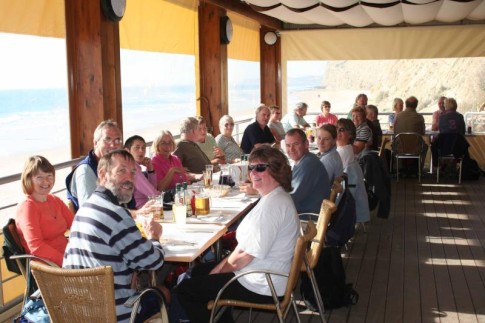 |
A selection of the myriad photographs taken over the 6 months in Lagos
37 Photos
Created 22 May 2007
|





